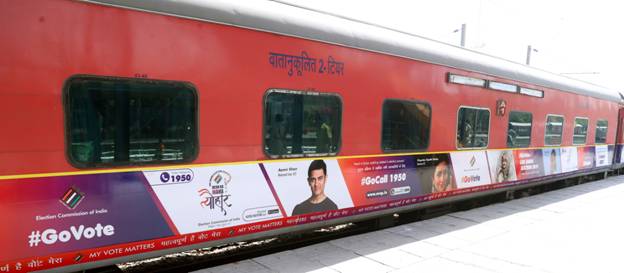
Steel Authority of India Ltd. (SAIL) and Indian Railways have entered into a strategic agreement on Long Term Tariff Contract (LTTC) on 29th August, 2017. The agreement was signed in the presence of senior officers of Railways and SAIL. in the office of CCM of SE Rly at Kolkata.
The agreement was inked by Shri Kaushik Mukhopadhyay, CCM, SE Rly on behalf of Railways and by Shri Debabrata Maiti, GM (Rail Movement) on behalf of SAIL and is valid for a period of three years.
SAIL is one of the premier customers of Indian Railways, having a rail coefficient of over 95%. This agreement involves as many as Fifteen Zones of Indian Railways for loading and unloading terminals, with different commodities applicable to LTTC, viz, Iron & Steel, Pig Iron, Slag, Limestone, Dolomite, Manganese Ore etc. with a Benchmark Gross Freight Revenue (BGFR) of Rs.3,417.74 Crores and with corresponding tonnage of 19.3MT effective from 1st Sept’2017. At present this is the highest LTTC agreement in terms of Gross Freight Revenue of Railways.
The following objectives are notified in the policy:-
- Long term freight revenue commitments from the customers.
- Stability and certainty of freight rates to the customers and assured supply of wagons.
- Generation of additional traffic volumes and revenues for railways.
- Freight Rebate on Incremental as well as Retention of Traffic to customers.
- Freight escalation protection to the customer during any particular contractual year.
SAIL is on the verge of completion of a major modernisation program at its different steel plants and is expected to attain substantial incremental growth. SAIL expects that infrastructural improvement at loading and unloading areas will reduce the detention and thereby improve the overall turn-around time of railway wagons in the future. As such, LTTC agreement will be mutually beneficial to both the organisations.







If freight escalation is prohibited during any particular contractual year, then is the punitive charges are so remain unchanged or will be based on the increased fright ?